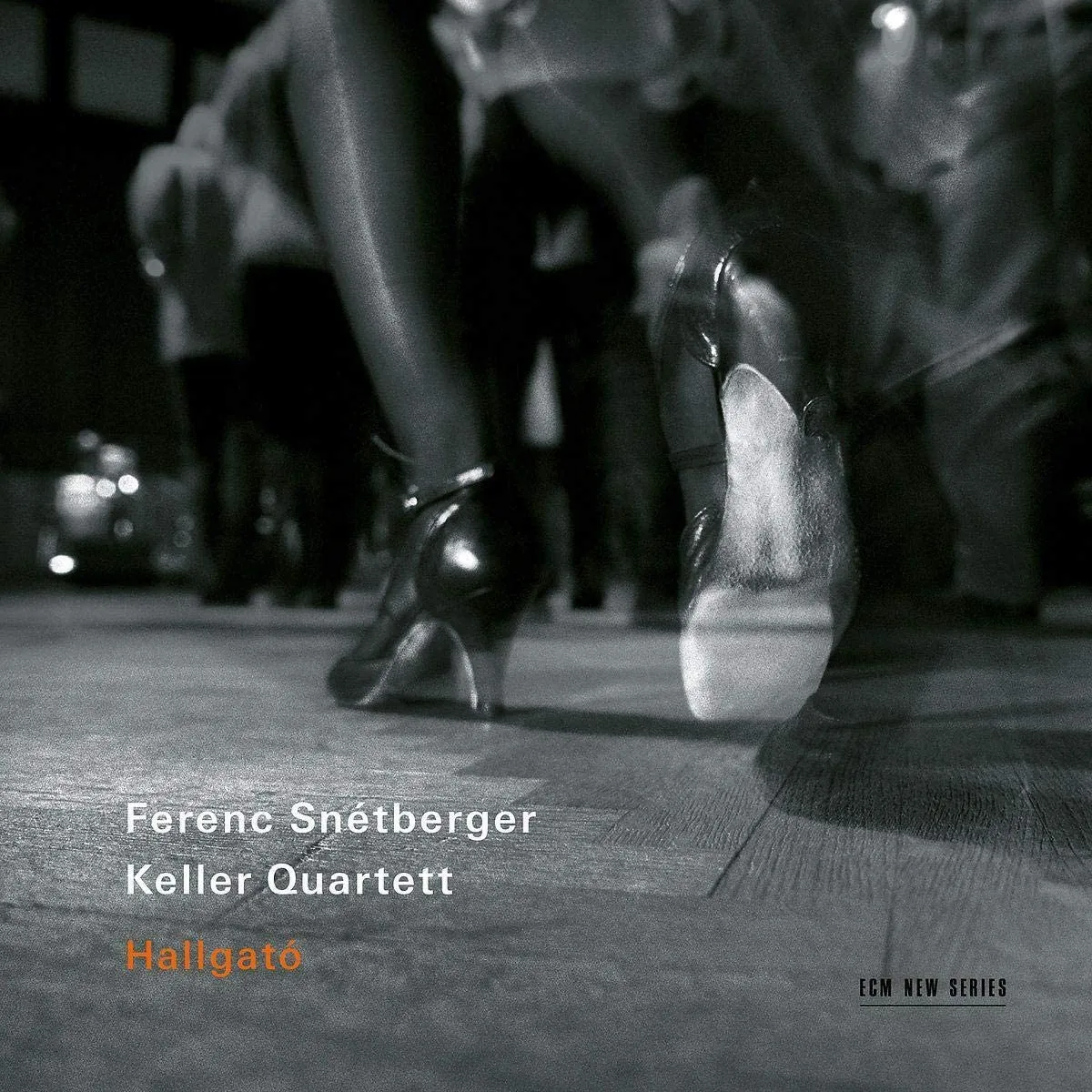
Hallgató Barber: Adagio; Dowland: I saw my Lady weep; Flow, my tears; Shostakovich: String Quartet No. 8; Snétberger: Guitar Concerto (In Memory of My People); Your Smile; Rhapsody Ferenc Snétberger (guitar); Keller Quartett ECM 351 9395 64:21 mins
The guitar’s intimate sound seduces the listener from the start. The rasp of fingers on strings and frets is so close, it’s as though the listener is leaning against guitarist Ferenc Snétberger’s knee. The programme combines works by Snétberger with Shostakovich, Dowland and Barber, unified by themes of suffering and homeland.
- Find out more about Shostakovich and his works
- Find out more about Barber and his works
Snétberger’s concerto In Memory of My People was inspired by the persecution of Roma and Sinti people. The first movement – the eponymous ‘Hallgató’ – wears its heart on its sleeve in lengthy rhapsodic and lyrical passages before a brief Allegro episode. The succeeding ‘Emlékek’ (keepsake) bears the listener on a stream of appealing, but ultimately directionless sound. The closing ‘Tánc’ offers enjoyable foot-tapping rhythms but also needs more structural direction.
Shostakovich’s String Quartet No. 8 is magnificent, raw, heart-rending – and lengthy, demanding greater extremes and more structural control than this. Still, the lilting, mock-waltz Allegretto is chilling and sinister, its swirling unearthliness interrupted by stabbing interjections in a thrilling performance. The arrangements of songs by Dowland work least well, since the texture is untransparent and the lines somehow directionless and unshaped. Barber’s famous Adagio thoughtfully sustains and reconfigures Dowland’s yearning and works well. The reprise of the main theme is especially moving, even if true ensemble eludes the players. The short work Your Smile provides great intimacy, with wonderfully close recorded sound. But the sentimental closing Rhapsody No. 1, taken from a film project about the Roma and the Holocaust, feels too insubstantial for this weighty topic.
Natasha Loges